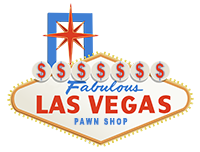
Times are hard for everyone. In 2017, 32.6 million households or 1 in 4 households in the US are either unbanked or underbanked.
There are times when you just need some money quickly. Something unexpected happens, like a personal or car loan that needs to be paid immediately. Or maybe you need urgent repairs to the walls of your house and it’s starting to get chilly.
If you only need a small amount of cash that you can pay back quickly, a bank loan may not be applicable. Or if you’re outside the financial mainstream, you may have considered selling to pawn shops for fast cash.
If you haven’t set foot to a pawn shop before, this guide will help you learn the ins and outs of the industry.
First Impressions
When we see pawn shops in movies, they’re always portrayed as seedy and shadowy. The place has dim or flickering lights and the broker looks someone from the mafia.
If you go to a pawn shop today, you’ll find a store that’s just like any other store. It’s gonna be bright, clean, and selling used quality products. You’ll see that the employees are polite and professional.
But what about their reputation of selling stolen goods?
This might be true before the 80s, but today, criminals will have a lot of trouble selling their pilfered items. Because of the internet, the police and pawn shops have a fast and reliable way of communicating with each other. The police can just send the shop an email with the items they’re looking for and possible suspects.
As a potential customer, you’re also protected by numerous federal statutes and regulations. These include the Truth in Lending Act, the USA Patriot Act, and the Fair Credit Reporting Act.
How Does Pawning or Selling to Pawn Shops Work?
Pawning an item for a loan is collateral-based. This means that you take an item of value (a diamond ring, for example) to the pawn shop and offer it as a collateral. If they’re interested, they’ll offer a loan or purchase it outright.
Until you repay the loan and the interests accrued, the pawn shop will get to keep the item.
What are the pros of this type of transaction?
First, there’s no need for a credit check. Second, there won’t be debt-collectors hounding you to repay back the loan. If you fail to pay, they’ll just keep the item and move on.
Another advantage is that if you don’t return the money, your credit score will not get dinged.
How to Prepare to Get the Best Deal
Research, research, research. This process has been made easy because of the internet. Take advantage of it to have an idea of what your item is worth.
If you have a really old item and the internet isn’t much help, go to an expert to get it appraised.
Take a look at what items pawn shops buy. You might think that the antique dining table is something they’ll be interested in, but you might be better off trying to pawn the power tools in your garage. Big furniture takes up too much retail space and some shops just won’t bother with it.
You should also be realistic with your expectations. Pawn shops will never offer the retail price. However, if you know the value of your item, you’ll have a leg to stand on when you’re negotiating with the broker.
Pawn Shop Deals Made Easy
We hope this guide has made you comfortable with the idea of pawning or selling to pawn shops.
If you’re looking for some emergency funds, visit Las Vegas Pawn. We won’t bite, we promise. You can also contact us today if you have any questions.

